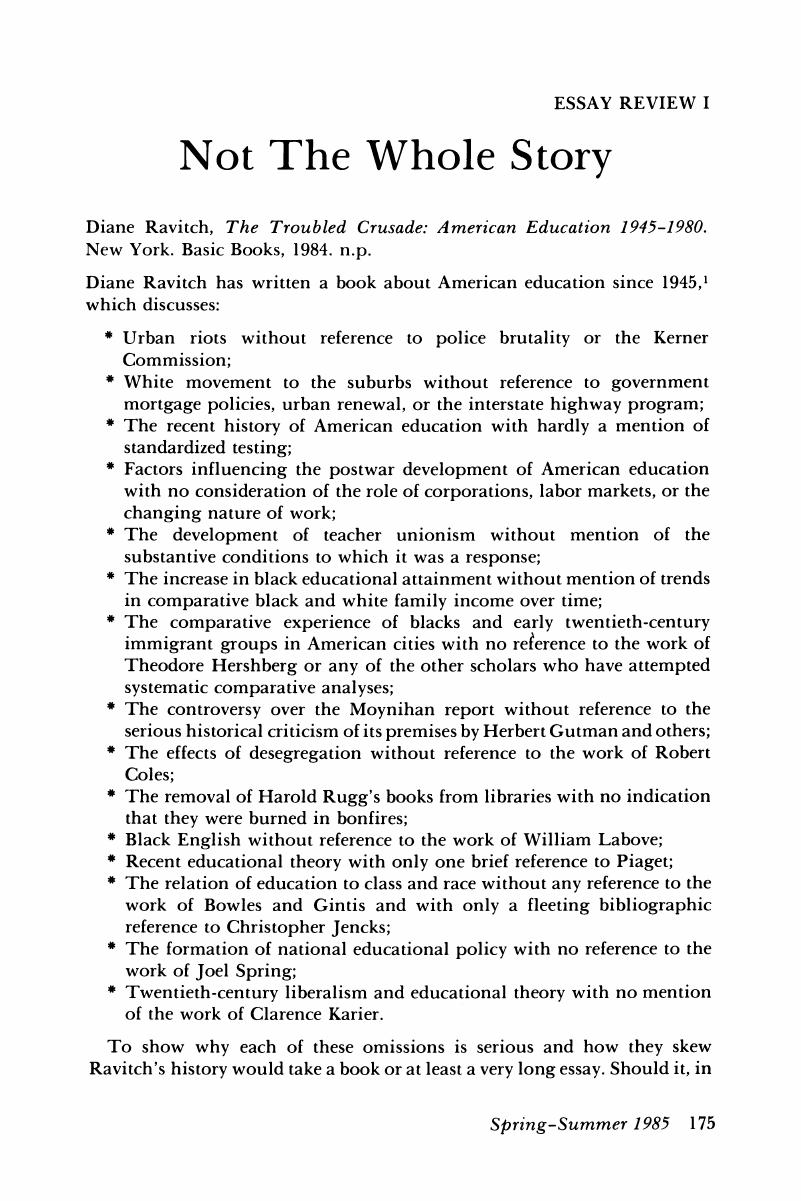No CrossRef data available.
Published online by Cambridge University Press: 24 February 2017

1. Ravitch, Diane, The Troubled Crusade: American Education 1945–1980 (New York, 1984).Google Scholar
2. Vaughn-Cooke, Denys, “The Economic Status of Black America—Is There a Recovery?,” National Urban League, The State of Black America 1984 (Washington, D.C., 1984), p. 21.Google Scholar
3. Ravitch, Diane, “A Debate on Education: Diane Ravitch Comments, Deborah Meier Replies,” Dissent (Spring 1984):223.Google Scholar
4. Ravitch, Diane, “A Debate on Education.” 223.Google Scholar
5. Meier, Deborah, “‘Getting Tough’ In the Schools,” Dissent (Winter 1984):61–70; and Ravitch, and Meier, , “A Debate on Education…,” 225–228.Google Scholar
6. Meier, , “A Debate on Education…,” 228. Ravitch objects vigorously to Meier's critique, which, she claims, quotes her inaccurately and distorts her meaning. (As one who has documented Ravitch's distortions of his own work, I cannot suppress a gleeful chuckle at her discomfort. How the chickens come home to roost.) See, Katz, Michael B., “An Apology for American Educational History: a Review of Diane Ravitch,” The Revisionists Revised, Harvard Educational Review, 49, 2 (1979). Although Meier did not quote accurately in some places and did leave the impression that Ravitch was more explicit about some of her views than she was, she is right about the thrust of the story. Ravitch cannot escape the implications of her version of history by hiding behind an illusory cloud of historical objectivity.Google Scholar